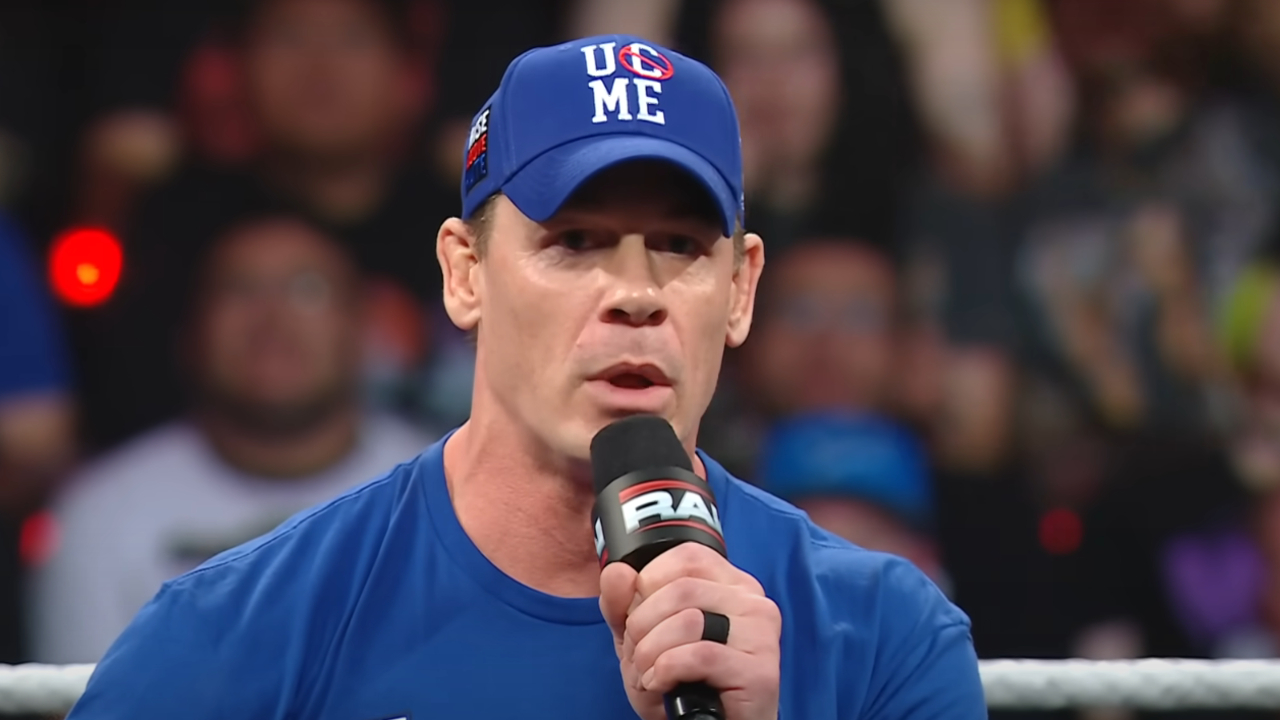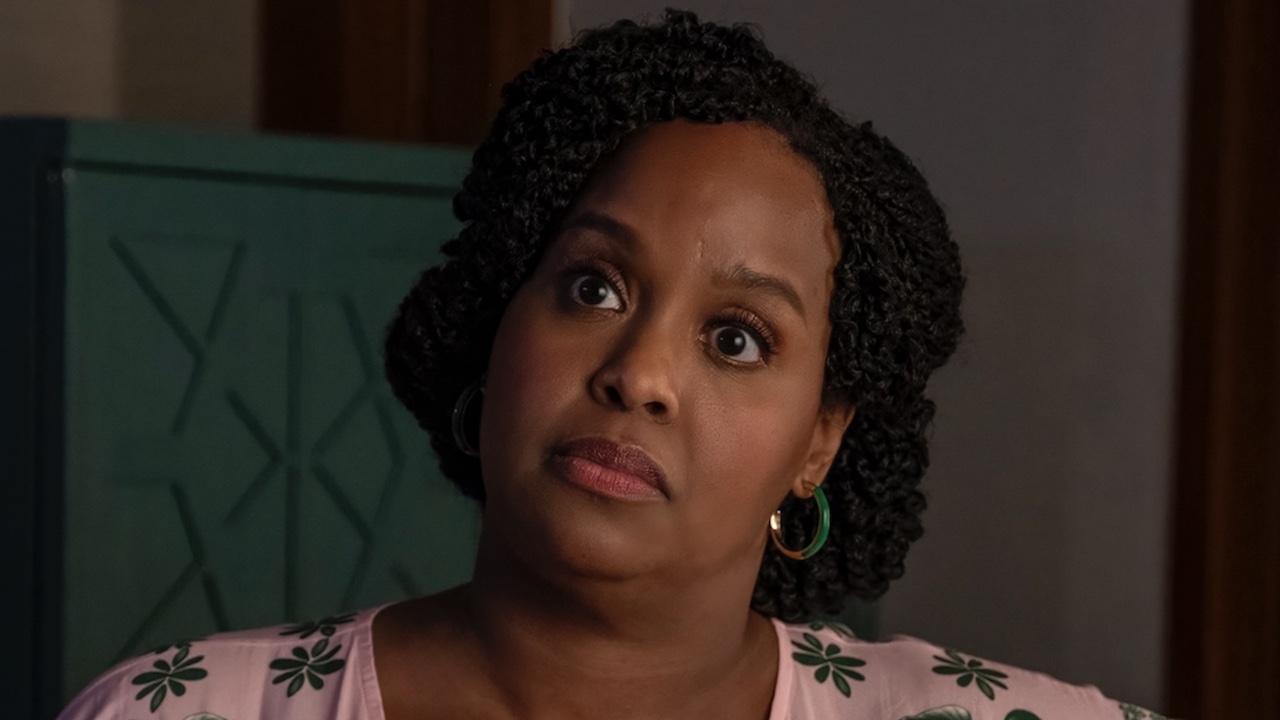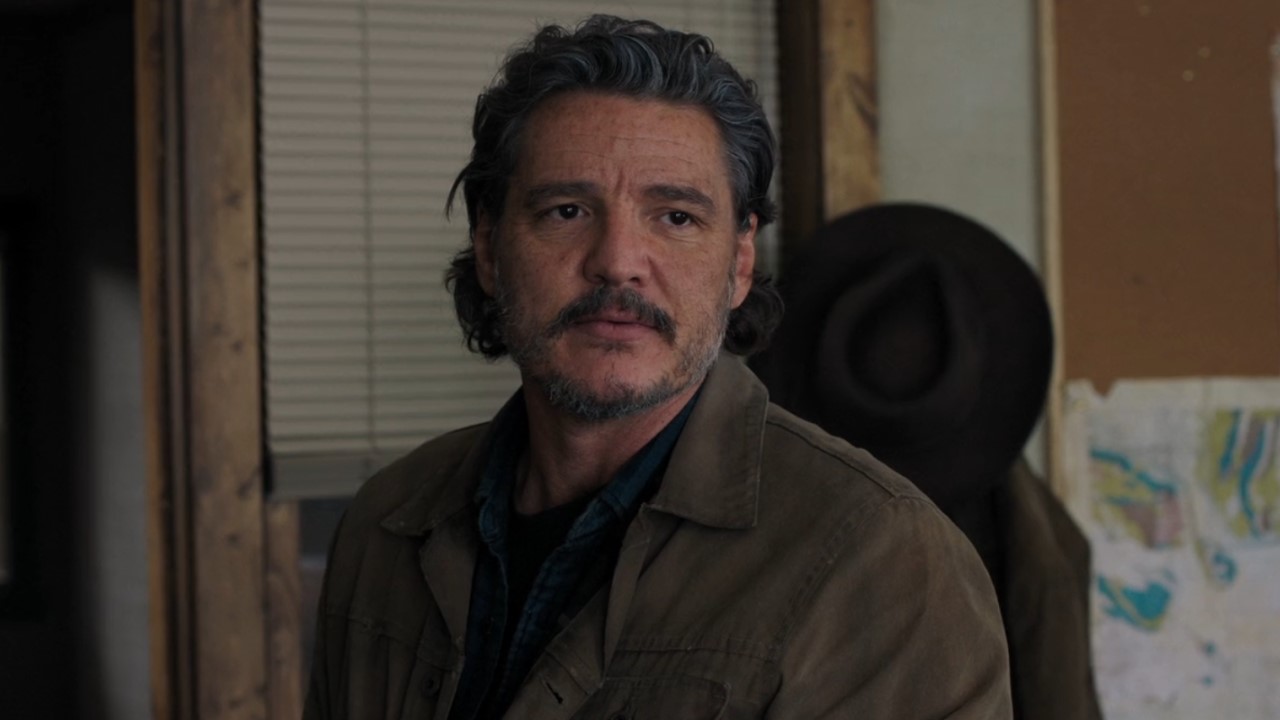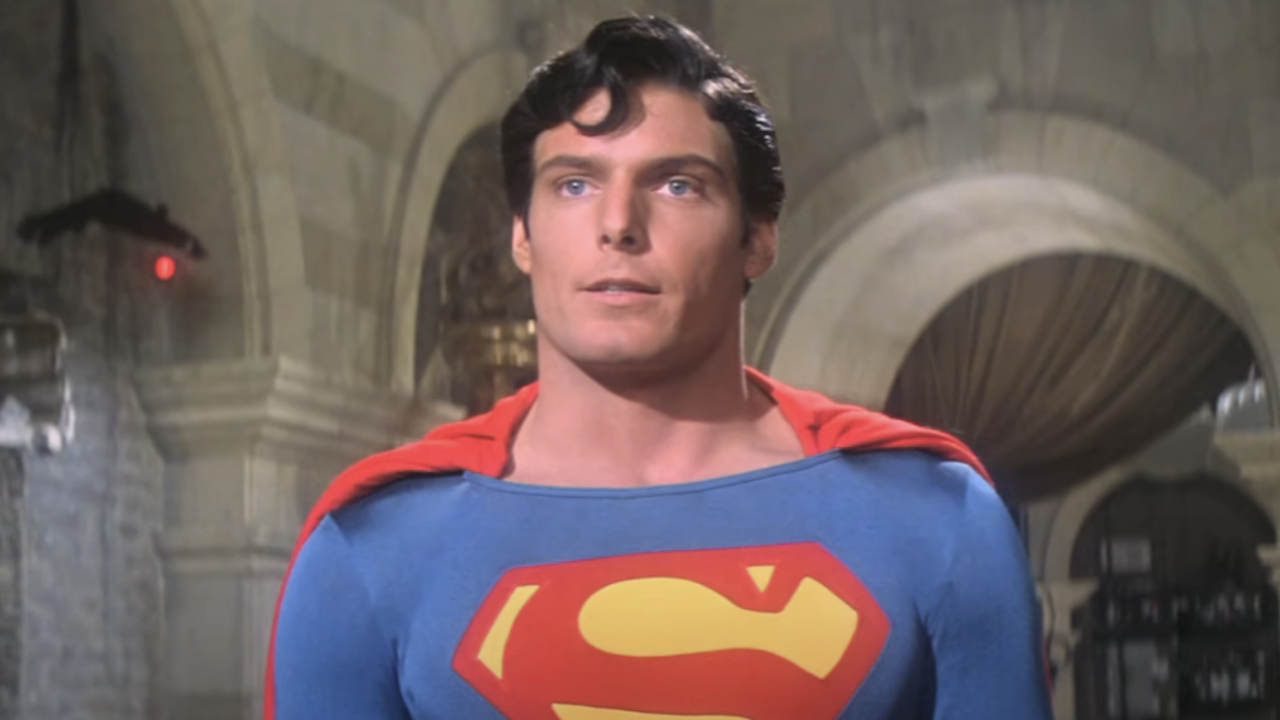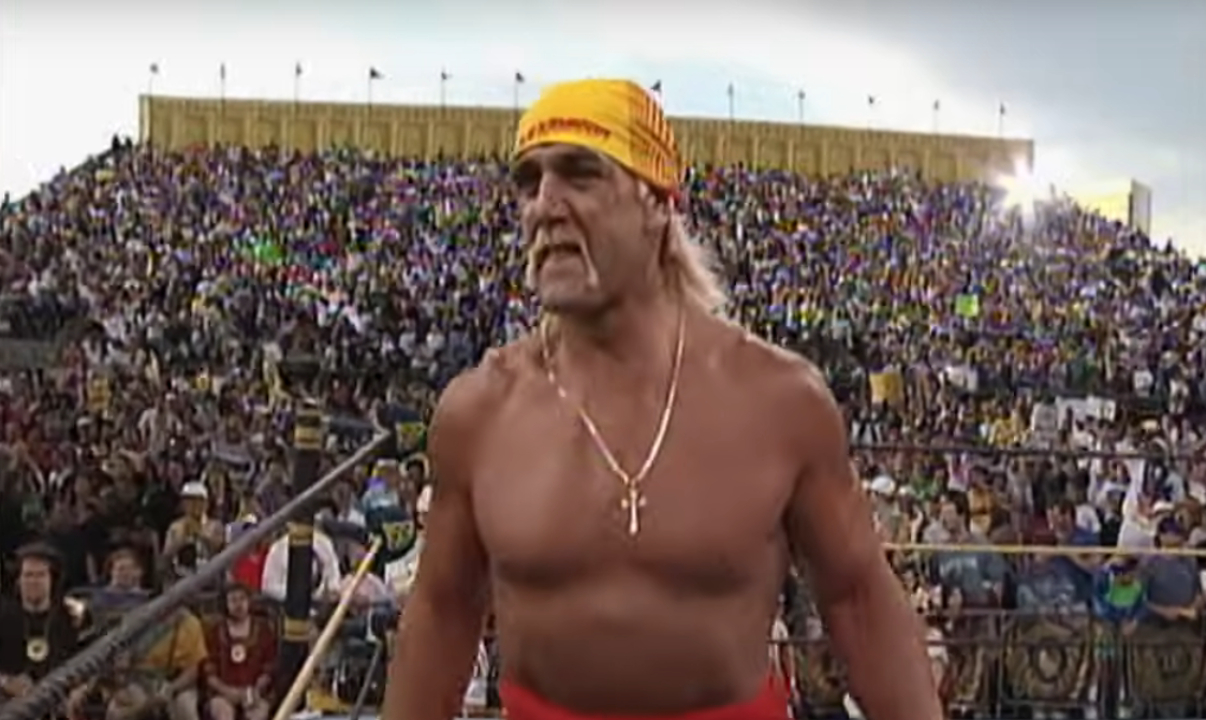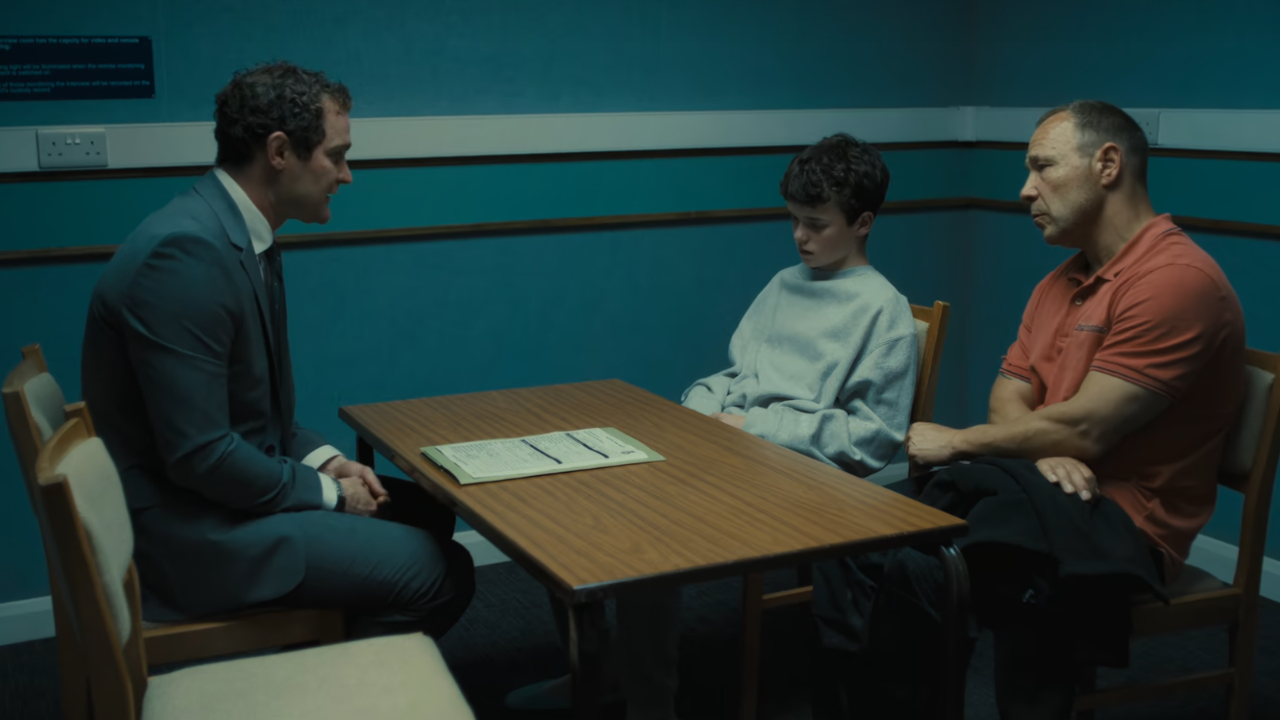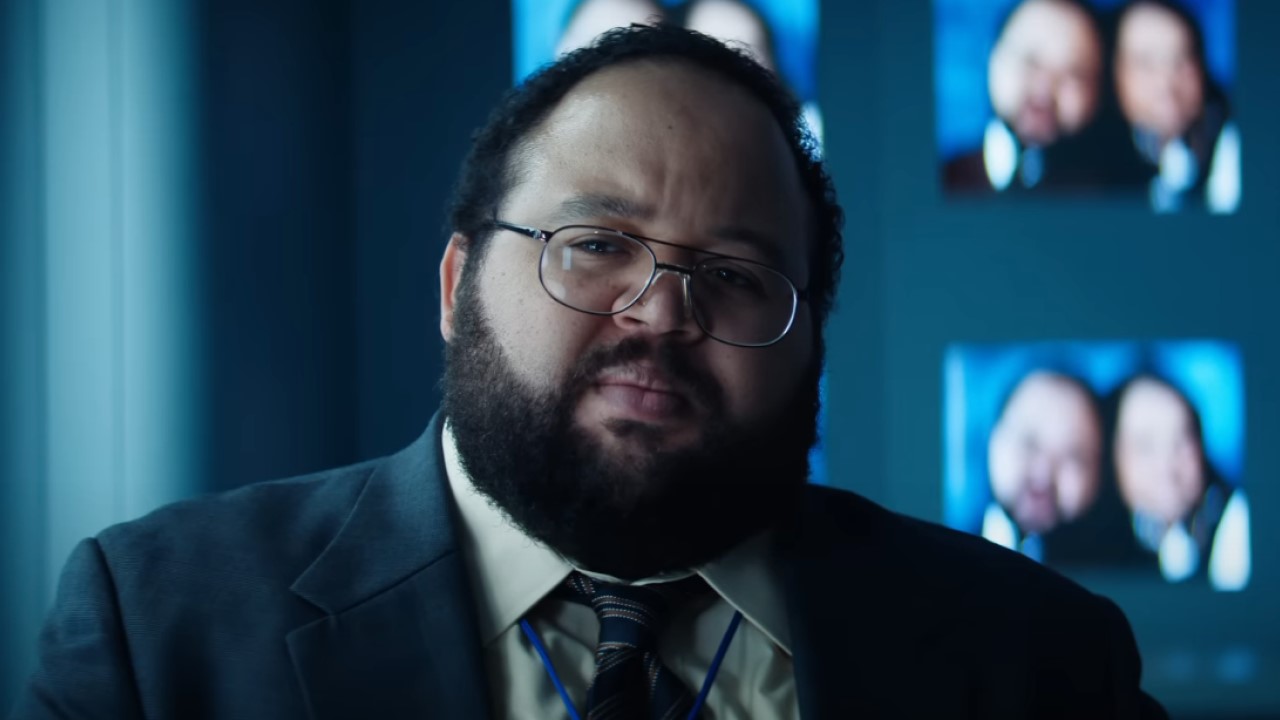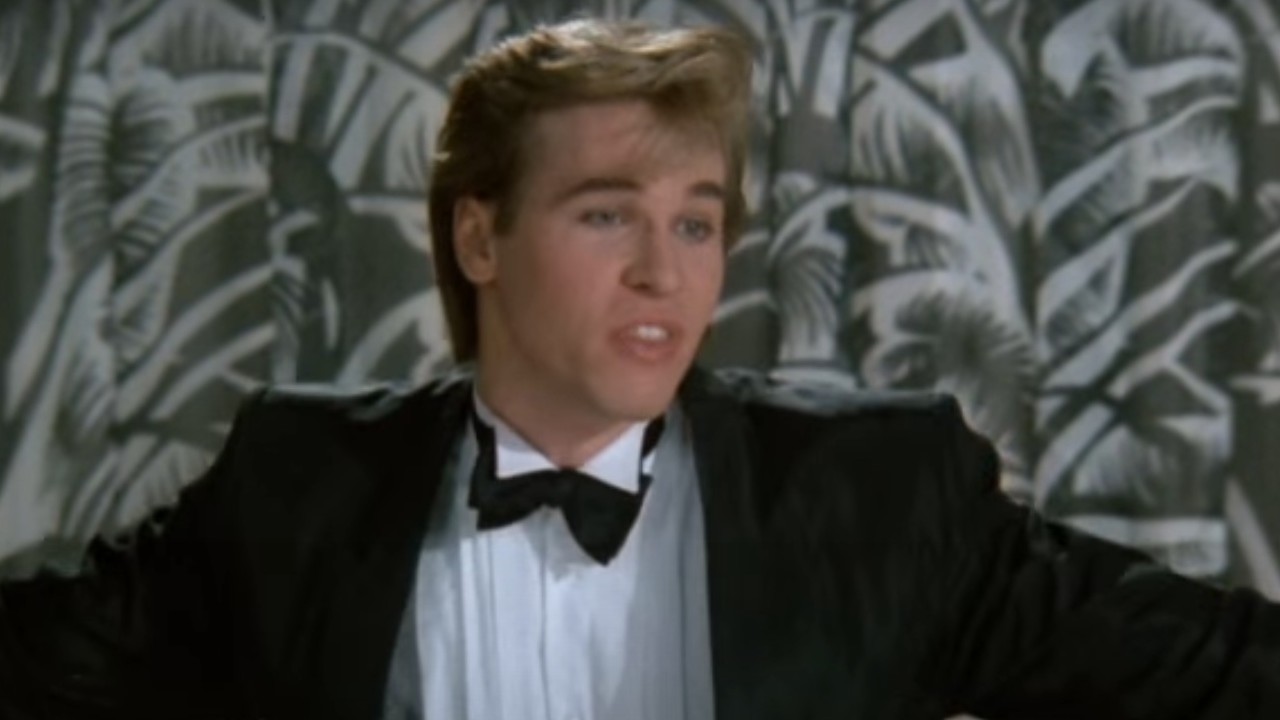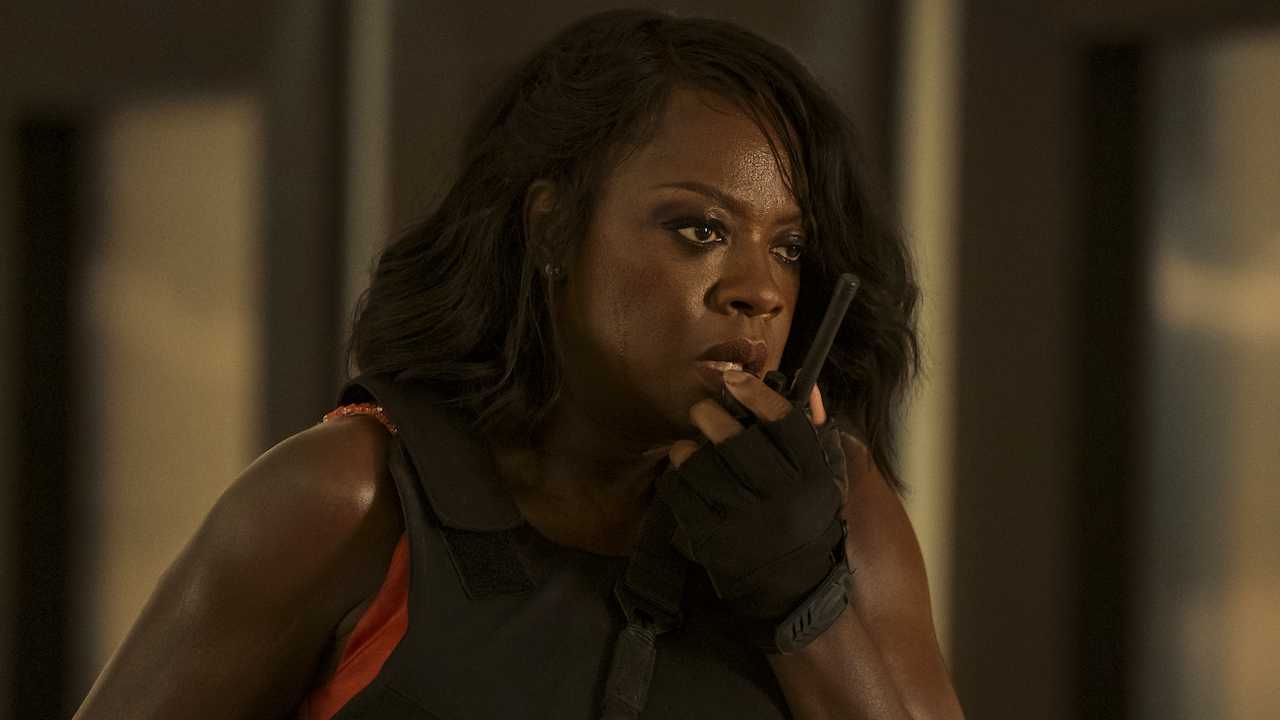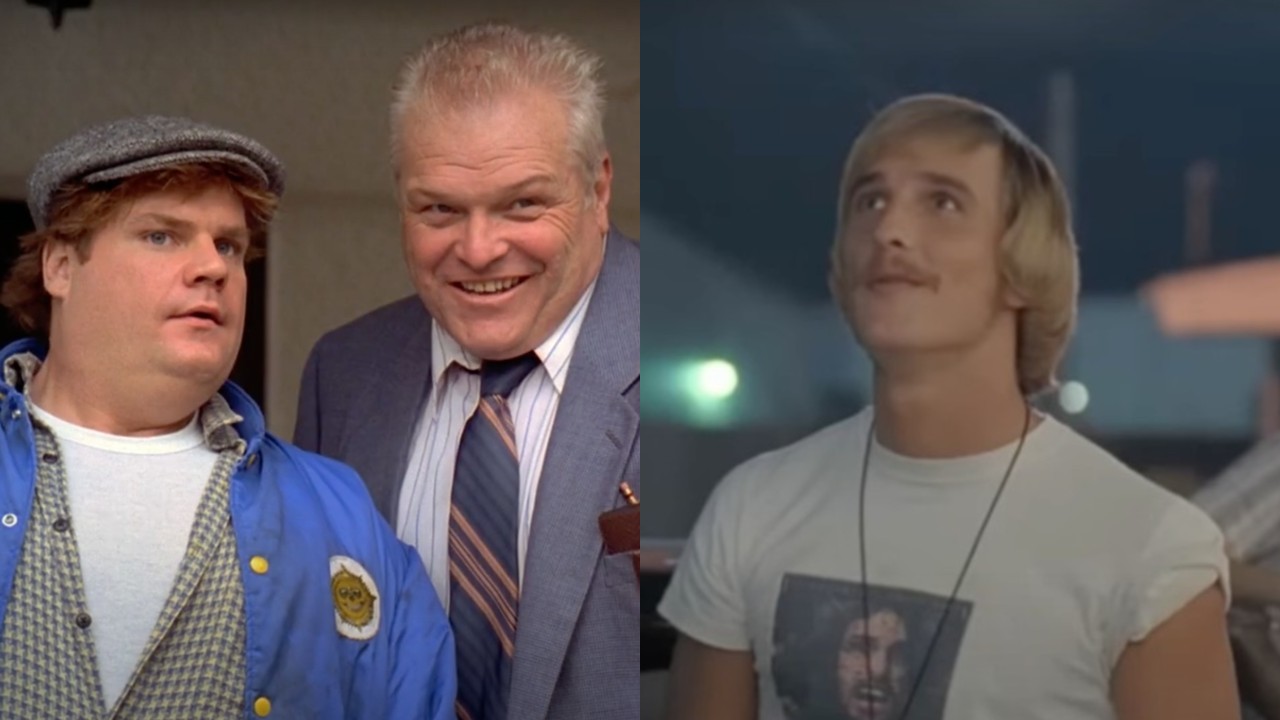Scream's History And Legacy: 1997's Scream 2 Is A Brilliant Sequel Made Lightning Fast
Ghostface strikes again!
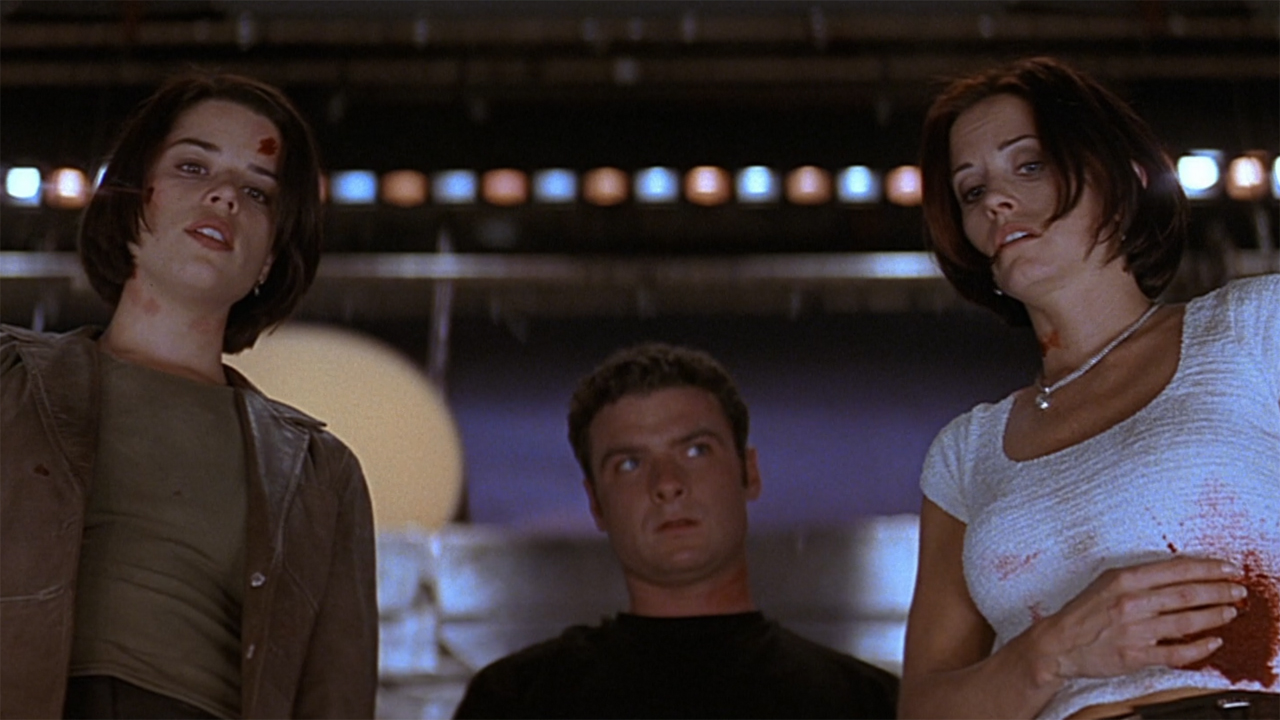
When Wes Craven’s Scream first arrived in theaters on December 20, it didn’t become an instant hit, opening in fourth place and making $6.4 million – but it proved to be something special in its second weekend. The arrival of the John Travolta film Michael pushed it down in the rankings to fifth place, but ticket sales actually went up, the buzzy horror film bringing in $9.1 million in its second Friday-to-Sunday, and then it managed to do even better than that in its third weekend (the first of the year 1997). Dimension Films was quickly aware that something exceptional was going on, and the original theatrical run lasted until Memorial Day weekend.
The success created an irony. In the 1980s and early 1990s, the horror genre was nearly killed by studios releasing endless sequels in slasher franchises, and Scream helped revive the form with its fresh, original, post-modern attitude… and yet, the film’s extreme popularity also demanded that a follow-up be made.
Dimension almost immediately gave a green light to Wes Craven to make Scream 2, and fortunately screenwriter Kevin Williamson was ready for the possibility. As explained by producer Bob Weinstein in the documentary Scream: The Inside Story, the original script included a five-page treatment for a sequel, and it outlined much of the film as we know it – with Sidney Prescott (Neve Campbell) and Randy Meeks (Jamie Kennedy) heading off to college and finding themselves at the center of another round of Ghostface killings amidst the release of Stab, a movie about the Woodsboro murders based on a book by Courteney Cox’s Gale Weathers.
That work put the filmmakers on solid footing as plans were made to release Scream 2 within the year, but complications diminished that advantage. For starters, the internet was voracious in hunting for information about the follow-up, and part of that hunger was not caring if what was learned ruined the movie. Leaks were a problem right from the very beginning, as Wes Craven explains in the documentary Still Screaming: The Ultimate Scary Movie Retrospective:
Kevin sent us something like 30 pages by email. We read it, it was fabulous; it was on the internet in its entirety that night. All of you little fuckers out there who think that’s really cute? You fucking ruined our next three months.
Measures were eventually taken to stop the leaks, including fake scripts. In a 2017 interview with Dread Central, Kevin Williamson explained that there were “dummy drafts” created to throw obsessive internet geeks off track – including one that had Elise Neal's Hallie McDaniel and Jerry O'Connell's Derek Feldman as the killers. David Arquette’s Dewey Riley was the man behind the mask in another.
The other big issue was the fact that 1997 was the year that Kevin Williamson was creating and shooting a brand new television series: Dawson’s Creek. Productions overlapped, and that meant that the script for Scream 2 was still being written when principal photography began.
Many, many bad movies have origin stories like this – but most movies don’t have brilliant minds like Wes Craven and Kevin Williamson making the important creative decisions. Released on December 10, 1997, Scream 2 was the opposite of a disaster, earning critical acclaim and just about matching its phenomenally successful predecessor at the box office. The arrival of Hollywood’s biggest new horror franchise was affirmed, further establishing Scream’s History And Legacy.
CINEMABLEND NEWSLETTER
Your Daily Blend of Entertainment News
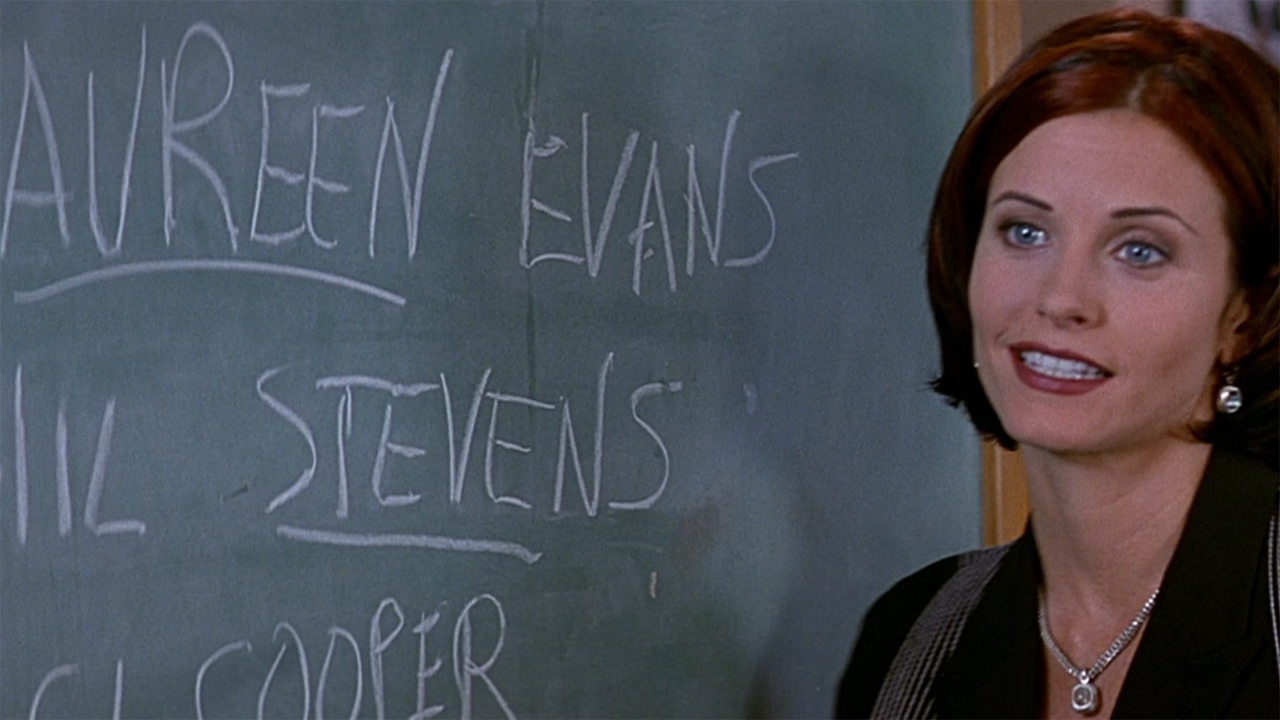
Why Scream 2 Is The Third Best Movie The Scream Franchise
It goes without saying that the barrage of slasher sequels in the 1980s and early 1990s wouldn’t have nearly killed the horror genre if they were actually good on the whole. There are obviously exceptions – with Child’s Play 2 and A Nightmare on Elm Street 3: Dream Warriors being titles that immediately spring to mind as quality films of the era and ilk – but those bright spots were drowned out in a sea of low budget productions that drove interesting original concepts into the ground.
Had things gone in a bad direction with Scream 2, we would be talking about the franchise in a very different way today, but Wes Craven and Kevin Williamson instead proved there was tremendous viability in the meta horror approach. In less than a year, they delivered a sequel that wonderfully built on the previous story, and, 25 years after its release, stands as the third best feature in the series. It has flaws, but also solidifies everything that makes the Scream movies great.
This is true right out the gate with the brilliant opening sequence at the Stab premiere. Matching the magic that is the opening sequence with Drew Barrymore in the first film was always going to be an impossible task, but the movie-within-a-movie is a special kind of brilliant, and the deaths of both Maureen Evans (Jada Pinkett Smith) and Phil Stevens (Omar Epps) are horrific and memorable. Scream 2 is the third best Scream movie, but it has the second best opening.
It’s lamented that more isn’t done with the idea of homage/copycat crimes. It’s fun that the names of the first three victims in the movie cleverly line up with the names of the first three victims in the Woodsboro killings, but it’s disappointing that the idea isn’t explored any further once the pattern is pointed to (for example, there’s no effort to protect potential victims named “Arthur” linked to Henry Winkler’s Principal Himbry). It comes across as not so much a red herring as an undercooked idea, particularly in light of the film’s terrific third act revelations.
The surprise that Debbie Salt (Laurie Metcalf) is actually Billy Loomis’ mother is an outstanding twist that is impossible to see coming (an effective homage to the original Friday The 13th), and while the integration of Mickey (Timothy Olyphant) in the plotting could be stronger, the movie makes up for that lacking with the exposition about his motives and plan. Mrs. Loomis finding her accomplice online is a fun shot taken at the internet – a standout villain for the Scream 2 production – and his planned legal strategy to “blame the movies” is a perfect and sinister inverse of one of Billy Loomis’ most iconic lines: “Movies don't create psychos; movies make psychos more creative!”
All of the returning characters are given vital and exciting roles that are impeccable extensions of where things are left at the end of the first movie (Sidney’s paranoia about her relationship with Derek, for example is perfectly played right up to his murder), and the presence of fame hungry fly-in-the-ointment Cotton Weary (Liev Schreiber) is genius following his 10-second part in Scream. He’s the best antagonist in the franchise who never wears a Ghostface mask.
So if Scream 2 is the third best Scream movie, what is the second best? You’ll have to keep reading this column in the coming weeks to find out.
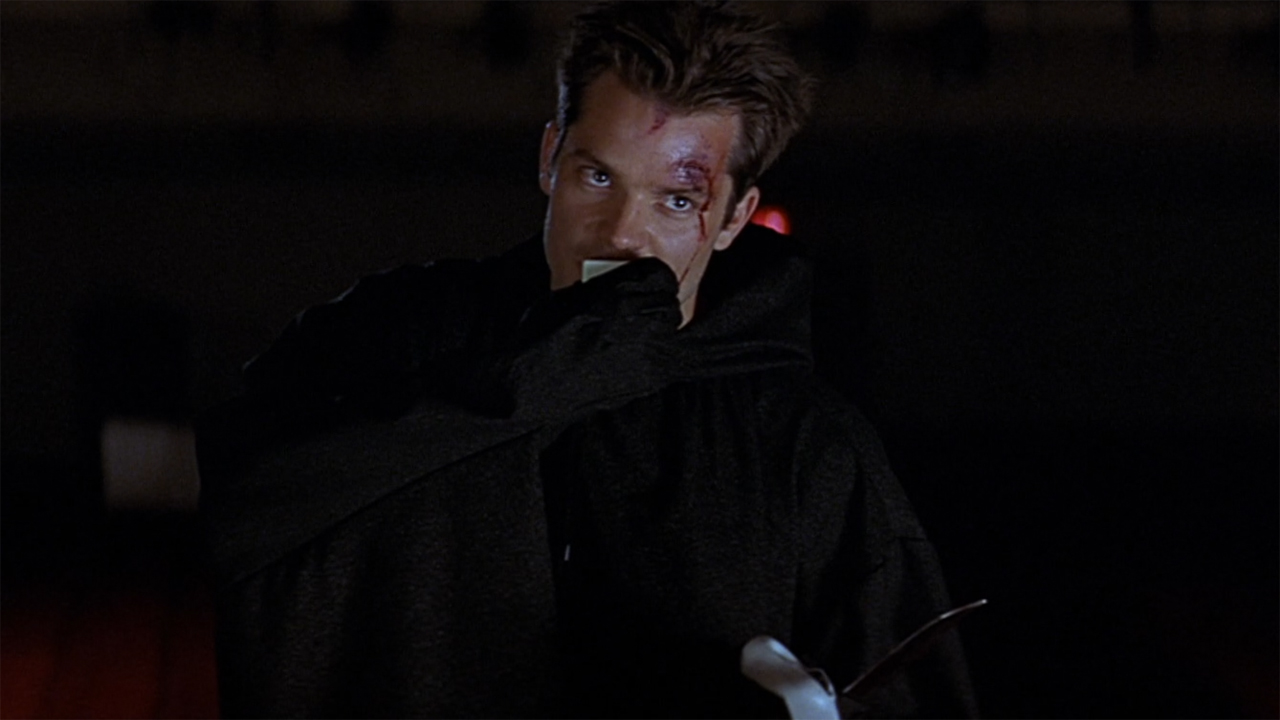
How Scream 2 Fits Into The History Of Horror
Thanks to Scream, the late 1990s saw a revival of the slasher subgenre. Studios were quick to try and capitalize on the fresh hunger that had been exposed, and as a result the late 1990s saw films like Urban Legend and I Know What You Did Last Summer (written by Kevin Williamson, based on the book of the same name) quickly moved into production. Those movies were successful, but didn’t get anywhere near hitting the highs of Scream or Scream 2 – which, like its predecessor, offers smart, self-reflexive commentary about the state of genre filmmaking at the time.
The Scream franchise is primarily regarded as distinct for the way in which it deconstructs some of the worst instincts of horror storytelling, but never to be ignored or forgotten are the ways in which it is also a celebration – and Scream 2 particularly leans into that latter direction. As explicitly explained by meta master Randy Meeks in the movie, it’s tradition for sequels to raise the bar and go bigger and bolder in content, and that’s a “rule” that the film embraces instead of subverting it. On the promise of more blood and bodies, it delivers.
In fact, Scream 2 is actually even more extreme than the filmmakers really intended it to be. In the Still Screaming documentary, editor Patrick Lussier explains that he and Wes Craven attempted to trick the MPAA by submitting an extra violent cut that would make the “real” cut seem more tolerable, and the response it got was completely unexpected:
On Scream 2, Wes had shot specific shots to make the MPAA version more violent, so that when we got the NC-17 that we anticipated back from them we could then cut it back down and make it the version that Wes wanted… And immediately what we get back is an R-rating for the version that was way more violent than we ever wanted. And how they responded to Scream 2 was the opening they felt was an excellent commentary on the nature of horror movies and that we were being responsible by making that in some way.
“Responsible” perhaps wasn’t exactly what the filmmakers were aiming for – but the sight of Maureen Evans bleeding and dying in front of the crowd at the Stab screening is certainly an unforgettable cinematic moment of movie violence being contrasted with “real” violence.
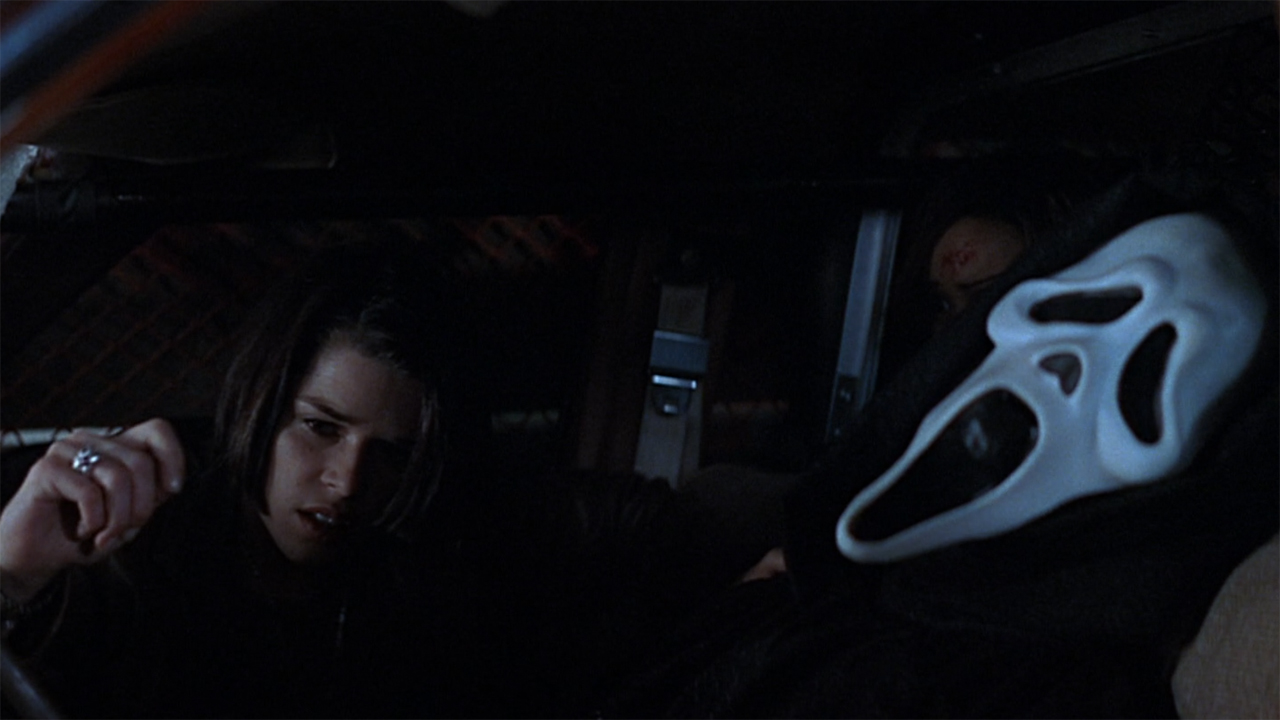
How Scream 2 Sets Up Its Franchise’s Future
Wes Craven’s Scream set a baseline for the attitude and approach that would define what the franchise would become, but Scream 2 is the movie that put into practice a forward trajectory that remains unique to the horror series. The original put a spotlight on the formula of the slasher subgenre, and the follow-up established the pattern of the movies being reflective of where they respectively stand within the series.
More controversially, Scream 2 also has a message to send to audiences about the safety of legacy characters in the canon. Once again we see Dewey Riley escape the scythe of the grim reaper (Craven further demonstrating his soft spot for the beloved deputy), but not so lucky is Randy Meeks. The horror geek’s death is one of the most memorable in the franchise – slaughtered by Mrs. Loomis after being taunted and yanked into a news van – but the call will forever be a point of contention among fans. Randy, with his movie-centric perspective, is a beloved component of what makes Scream great, but his death also massively raises the stakes in the franchise, as no legacy characters have felt totally safe in the sequels since then.
Narratively speaking, we haven’t seen subsequent Scream sequels to date do much to specifically draw from plot points in Scream 2, though Cotton Weary’s expanded role in the movie does set him up for his (brief) appearance in Scream 3.
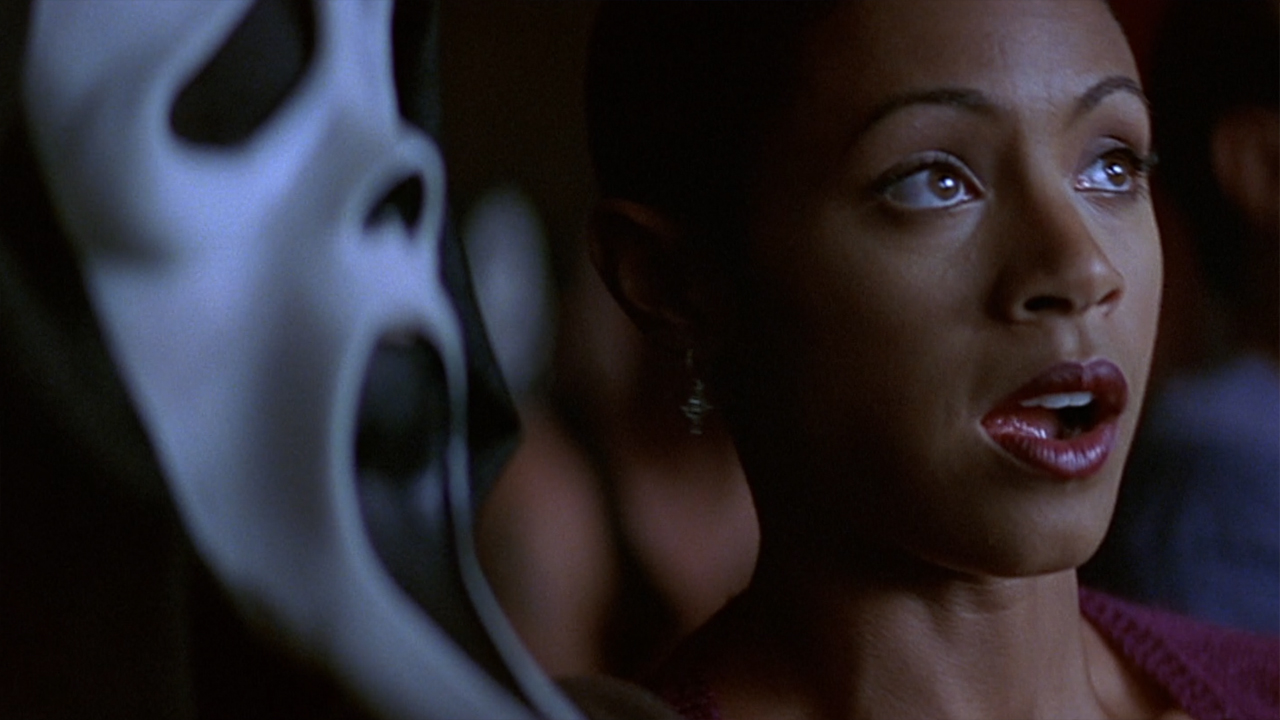
Is Scream 2 A Good Horror Movie In General?
Even if you divorce Scream 2 from the grander Scream series and watch it as an independent release, it’s tremendous – and that’s a credit to the genius of Wes Craven. His style and approach allow us to emotionally connect with the main characters in a meaningful way (developing the excellent romantic tension between Gale and Dewey and understanding Sidney’s trauma and resilience), and he pairs that beautifully with sequences saturated in dread and terror.
Randy’s death, the murder of Cici (Sarah Michelle Gellar), the chase around the film department, the Agamemnon dress rehearsal, and the escape from the crashed cop car are all heart-stoppers that demonstrate why Craven is recognized as one of the true masters of his craft. Scream 2 may only be the third best Scream movie, but it also has its own special place in horror history.
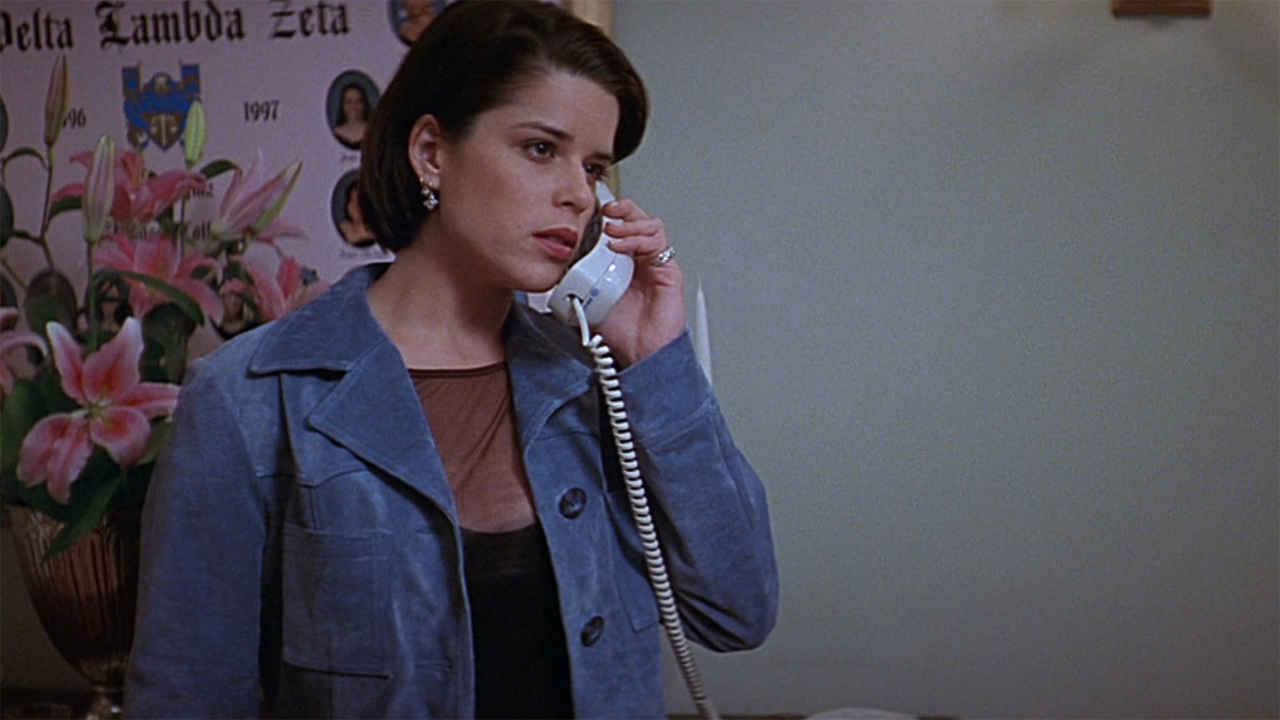
How To Watch Scream 2
If you already have a Paramount+ subscription, you could be watching Scream 2 as soon as you finish reading this article – but even if you don’t, it will only take you a couple of clicks to start your viewing experience. The film is available for digital rental and purchase from all of the major online outlets, including Amazon Prime Video, Google Play, Vudu, and Apple. If you’re a physical media collector, you should definitely pick up a copy of the 4K set.
This column will continue next week with a deep dive into Scream 3, which is arguably the most controversial chapter of this beloved franchise. Look for the feature on CinemaBlend next Thursday as we continue to count down to the release of Scream VI, which will be in theaters on March 10.

Eric Eisenberg is the Assistant Managing Editor at CinemaBlend. After graduating Boston University and earning a bachelor’s degree in journalism, he took a part-time job as a staff writer for CinemaBlend, and after six months was offered the opportunity to move to Los Angeles and take on a newly created West Coast Editor position. Over a decade later, he's continuing to advance his interests and expertise. In addition to conducting filmmaker interviews and contributing to the news and feature content of the site, Eric also oversees the Movie Reviews section, writes the the weekend box office report (published Sundays), and is the site's resident Stephen King expert. He has two King-related columns.
